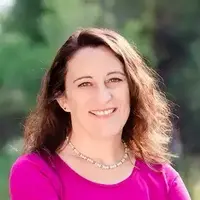Building Pathways to STEM Careers in Geoscience and Environmental Science through the Colorado Community Colleges
Oral Session Part of
Thursday A: Recruiting, Retaining and Graduating our Students & Broadening Participation: Focusing on Student Development
Authors
 Patrick Shabram, Front Range Community College
Patrick Shabram, Front Range Community College
 lesley smith, The Cooperative Institute for Research in Environmental Sciences (CIRES)
lesley smith, The Cooperative Institute for Research in Environmental Sciences (CIRES)
 Anne Gold, University of Colorado at Boulder
Anne Gold, University of Colorado at Boulder
 Donna Charlevoix, EarthScope Consortium
Donna Charlevoix, EarthScope Consortium
 Aisha Morris, National Science Foundation
Aisha Morris, National Science Foundation
 Kelsey Russo-Nixon, EarthScope
Kelsey Russo-Nixon, EarthScope
 Max Miller, Front Range Community College
Max Miller, Front Range Community College
Colorado's adult population ranks second in the nation for college degrees and ninth for income levels, yet Colorado's educational achievement gap for low-income, first generation, and minority students persists. Sometimes known as the "Colorado Paradox," the disparity between Colorado's diversified science and high tech employment and the inability to transition high school students, especially underrepresented students, into postsecondary STEM education, Colorado has become dependent on in-migration of a skilled workforce. Further, the American Geoscience Institute 2016 workforce report predicts a U.S. workforce shortage of approximately 90,000 geoscientists by 2024. Two NSF-funded programs were developed to encourage early entry into geoscience and environmental science fields by expanding opportunities, traditionally only open to upperclassman, to Colorado's community college students. The first, Research Experience for Community Colleges Students (RECCS), is a Research Experience for Undergraduates (REU) site run by the Cooperative Institute for Research in Environmental Sciences. The RECCS program was one of the first REUs to focus on community college students. The second, Geo-Launchpad, is a collaborative effort between Front Range Community College and UNAVCO to establish a tiered program that provides community college students in Colorado with experiential learning opportunities. The Geo-Launchpad program creates a point of entry into geo-focused careers through a structured experience, starting with introductory workshops, a one credit course focused on careers, research, and internship opportunities, and for some students, a paid summer internship at UNAVCO. Both programs establish mentor relationships between students and faculty/professionals. Results show promise, as community college students demonstrated their ability to work within a professional, geoscience/research focused setting. Evaluation shows increased interest by students in pursuing STEM focused careers, and many alumni of the programs have moved into other research opportunities. Challenges persist, however, both in student preparation and awareness of the programs, and the introduction of nontraditional curriculum into community colleges.
